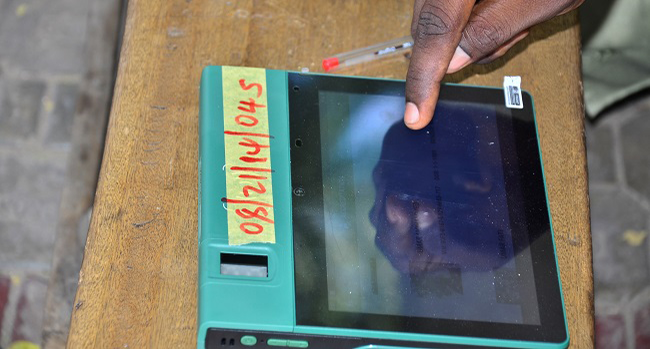A Civil Society Organisation (CSO) has expressed displeasure over the Bimodal Voters Accreditation System (BVAS) machine’s malfunction as Nigerians await the results of the off-cycle elections.
Voters can be accredited using their Permanent Voter Cards (PVCs), fingerprints, or face recognition technology with the help of the BVAS machine.
The Independent National Electoral Commission (INEC) held governorship elections in the states of Bayelsa, Imo, and Kogi on Saturday, November 11.
Briefing journalists in Abuja, the Convener, Nigeria Civil Society Situation Room, Yunusa Ya’u, said reports indicate that the BVAS functioned optimally in Bayelsa and Kogi States, with a low performance in Imo.
“The Bimodal Voters Accreditation System (BVAS) functioned optimally in most polling units across the three states. However, there were reports of malfunctioning of the machines,” he said.
“In Bayelsa State, there were incidents of malfunctioning in PU003 RA11 in Kolokuma/Opokuma Local Government Area. Similarly, PU008 RA03 in Ekeremor LGA reportedly rejected fingerprints and facial recognition of some eligible voters.
“A number of eligible voters were disenfranchised following incidents of BVAS malfunctioning in PU003 in Idah LGA (of Kogi State).
“The situation room observes a variance in the arrival of election materials and opening of polls in the three states.
“Reports from situation room field observers indicate that the majority, 86 per cent of the polling units observed in Kogi State opened by the official opening time of 8:30 am while in Bayelsa State, 66 per cent of the polling units visited opened by 8:30 am.
“In Imo State, the opening of polls was late in many polling units as reports from our observers show that only 26 per cent of the polling units opened by 8:30 am.”



